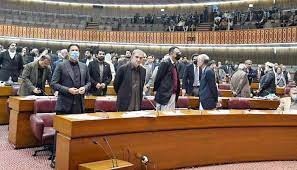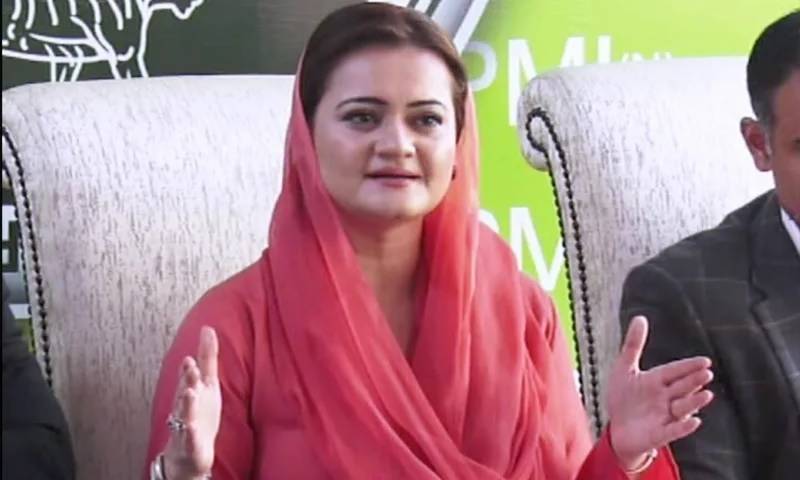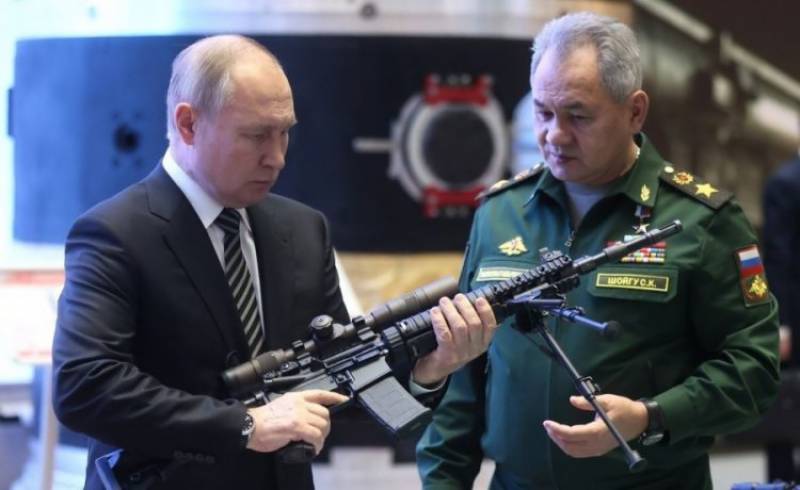The latest to die, Lieutenant General Yakov Rezanstev, was a commander of Russia’s 49th Combined Arms Army in its southern military district, an official disclosed.
Meanwhile, Russian Army Commander General Vlaislav Yershov, of the 6th Combined Arms Army, was identified as the general sacked earlier this week by the Kremlin.
It has been reported his abrupt dismissal was due to the heavy losses and strategic failures seen during the Russian military’s month-long invasion of its neighbour.
Among the others said to have been killed is General Magomed Tushaev, of the Chechen Special Forces deployed by Russian President Vladimir Putin in Ukraine.
The number of both rank-and-file Russian troops and senior officers allegedly killed in the month-long war has shocked Western military and security officials.
It has been blamed in part on communications and logistics issues, leading senior officers to use unencrypted channels which has exposed them to Ukrainian forces.
The Kremlin claimed Friday that just over 1,300 military personnel have died in the war, but estimates of four or five times that number are seen as credible in Western capitals.
Officials there believe around 20 of the 115-120 battalion tactical groups deployed by Moscow in Ukraine are “no longer combat effective” due to the losses sustained.
“After a month of operations to have somewhere in the region of perhaps a sixth… of the forces being no longer combat effective — that’s a pretty remarkable set of statistics,” the Western official said.
He also claimed the commander of Russia’s 37th Motor Rifle Brigade had been killed by his own troops, “as a consequence of the scale of losses that had been taken by his brigade”.
“We believe he was killed by his own troops deliberately,” the official said, noting he was “run over”.
He added it was a further sign of “morale challenges that Russian forces are having”.
“They really have found themselves in a hornet’s nest and they’re suffering really badly,” the official said.
Less ambitious goals in war
Russia has signalled it may dial back its war aims to focus on eastern Ukraine after failing to break the nation’s resistance in a month of fighting and attacks on civilians, including up to 300 feared killed in the bombing of a theatre.
The possible shift came ahead of a planned meeting by US President Joe Biden with Ukrainian refugees in Poland and talks with his Polish counterpart Andrzej Duda in Warsaw before he gives a speech on the “brutal war”, the White House said.
Russian President Vladimir Putin had ordered the February invasion to destroy Ukraine’s military and topple pro-Western President Volodymyr Zelensky, bringing the country under Russia’s sway.
But Sergei Rudskoi, a senior general, suggested a considerably reduced “main goal” of controlling Donbas, an eastern region already partly held by Russian proxies.
His surprise statement came as a Western official reported that a seventh Russian general, Lieutenant General Yakov Rezanstev, had died in Ukraine and that a colonel had been “deliberately” killed by his own demoralised men.
Complicating Moscow’s challenges, invasion troops were facing a counteroffensive in Kherson, the only major Ukrainian city under Russian control.
Visiting Rzeszow, about 80 kilometres (50 miles) from Ukraine, Biden praised Ukraine’s “incredible” resistance, comparing the conflict to a bigger version of communist China’s 1989 crushing of protests in Tiananmen Square.
Biden told soldiers from the 82nd Airborne Division that the struggle in eastern Europe represents a historic “inflection point”.
“Are democracies going to prevail… or are autocracies going to prevail? And that’s really what’s at stake,” Biden said.
The US leader was briefed on the humanitarian situation, with more than 3.7 million refugees fleeing Ukraine, most of them into Poland.
Earlier, he ended a trip to Brussels for meetings with Western allies by announcing new measures to help the European Union shed dependence on imported Russian energy.
The plan is part of a sea change in the West, which for years has shrunk from direct confrontation with the Kremlin, but now seeks to make Putin a pariah.
– ‘Children’ written clearly –
Russia’s far-bigger military continued to combat determined Ukrainian defenders who are using Western-supplied weapons — from near the capital Kyiv to Kharkiv, the Donbas region and the devastated southern port city of Mariupol.
Authorities said they fear some 300 civilians in Mariupol may have died in a Russian air strike on a theatre being used as a bomb shelter last week.
The theatre was targeted despite the word “children” being written large in Russian on the ground outside, so as to be visible to pilots.
Russian forces hammering Mariupol’s out-gunned resistance consider the city a lynchpin in their attempt to create a land corridor between the Crimea region, which Moscow seized in 2014, and the Donbas.
France’s President Emmanuel Macron announced a bold plan with Turkey and Greece to evacuate “all those who wish to leave Mariupol”, adding he would discuss it with Putin soon.
One Mariupol resident who already left the city, 33-year-old Oksana Vynokurova, described leaving behind a hellscape.
“I have escaped, but I have lost all my family. I have lost my house. I am desperate,” she told AFP after reaching the western city of Lviv by train.
“My mum is dead. I left my mother in the yard like a dog, because everybody’s shooting.”
Zelensky said in a video statement Friday that despite thousands of evacuations from Mariupol, “the situation in the city remains tragic”.
– Counter-attacks –
Russia’s army was predicted by some to roll across Ukraine with little resistance.
But Putin’s military has exhibited poor discipline and morale, faulty equipment and tactics, as well as brutality toward civilians.
Amid heavy censorship, Russian authorities Friday gave only their second official military death toll since the start of the invasion, at 1,351.
This is far below Western estimates, with one senior NATO official saying between 7,000 and 15,000 Russian soldiers have died.
Rudskoi’s announcement of a pivot to the battle for eastern Ukraine was accompanied by claims of success.
He said Ukraine’s military has been severely degraded and that Russia hadn’t seized cities to “prevent destruction and minimise losses among personnel and civilians”.
But his reference to plans for a “liberation” of the Donbas region could lay the groundwork for the Kremlin to focus on an easier campaign that can be sold to Russians as a victory.
Meanwhile, Ukrainians are mounting an increasingly aggressive defence and in places taking back ground.
Britain’s defence ministry said Ukrainian counter-attacks are underway near Kyiv and a Pentagon official said Ukrainian forces were also attempting to recapture Kherson, the only major city held by Russian invasion troops.
Ambulances rushed more people out of the devastated commuter town of Irpin, northwest of Kyiv on Friday, AFP journalists said, as Ukrainian forces tried to push back Russian forces.
A giant pall of black smoke rose from the direction of Irpin, scene of some of the war’s heaviest fighting, while shell explosions echoed off nearby apartment blocks.
Paramedics took one elderly woman with a waxen face out of an ambulance on a bloodstained stretcher, as the sound of blasts and air raid sirens could be heard late into the night across the capital.
– Chemical weapons warning –
As the Russian war machine stumbles, Western officials are warning Putin could resort to chemical weapons.
In Brussels on Thursday for NATO, EU and G7 summits, Biden said the transatlantic alliance would “respond” if Putin does use chemical warfare — though a top advisor stressed the US itself “has no intention of using chemical weapons”.
Kremlin spokesman Dmitry Peskov accused Biden of seeking to “divert attention”.
And Putin, whom Biden again branded a “war criminal”, gave a speech Friday saying Russia was the victim, comparing Western boycotts to “Nazis in Germany”.
– Energy strategy –
Earlier Friday, Biden and EU commission chief Ursula von der Leyen announced a joint energy task force seeking a way for Europe to break its energy dependence on Russia.
Germany, Moscow’s biggest customer in Europe, said it would halve Russian oil imports by June and end all coal deliveries by autumn.
The effort to reorient Europe’s energy supplies will take time and, together with sweeping sanctions aimed at isolating Russia’s currency and industries, is already shocking Western economies.
But von der Leyen said the campaign is working, and “draining Putin’s resources to finance this atrocious war”.











